|
Tipton had one of the most
concentrated areas of heavy industry in the Black
Country. In the nineteenth and twentieth centuries, the
sights and sounds of industry were everywhere, along
with brightly lit orange and red skies at night.
|
|
Tipton
manufacturing companies, listed in Peck's 1896
to 97 Circular Directory:
 |
| Some of Tipton's Many Industries |
H. P. Parkes, Chains and Anchors
In about 1820 Henry Pershouse Parkes, from
Dudley, established the Tipton Green Chain and
Anchor Works. The firm’s products included
cables, chains, anchors and all kinds of
forgings. In 1851 some tests were carried out on
the company’s chains to demonstrate the tensile
strength and fibrous toughness of the iron used
in their production. The iron used on this
occasion was supplied by Summer Hill Iron Works.
Some of the chains were exhibited at the Great
Exhibition in 1851 and also at the 1855 French
Exhibition in Paris, where they won a prize
medal.
Henry Pershouse Parkes died in 1867 and appears
to have been succeeded by his son, who had the
same name. In 1867 the firm produced the largest
anchor in the world, at that time. It was built
for Brunel’s S. S. Great Eastern to the patented
design of Joseph Beterley, of Liverpool. The
anchor, which weighed eight tons was twenty six
and a half feet long and cast from iron supplied
by Bloomfield Iron Works. It was tested at
Tipton Proving House and found to be able to
stand a strain of 100 tons.
Henry Pershouse Parkes junior went into
partnership with Alexander Stewart Ross to form
Henry P. Parkes and Ross. The partnership came
to an end in 1885 and the company became Henry
P. Parkes & Company.
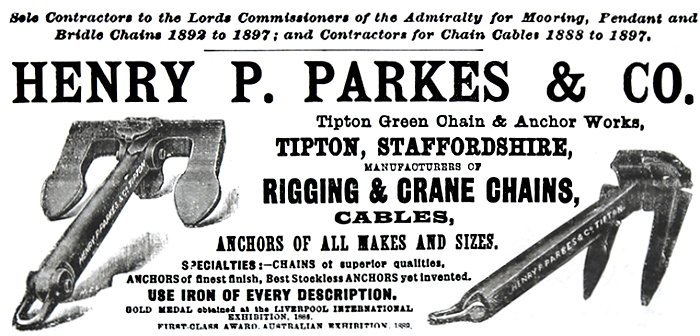
In 1904 the business was sold and became H. P.
Parkes and Company, under the control of N.
Hingley & Sons Limited, of Netherton. In 1944 the
company’s name was changed to Richard Sykes and
Son Limited, then in 1947 it became H. P. Parkes
& Company Limited. The business went into
liquidation in 1966.
Tipton Proving House
The Proving House was owned
by Lloyd's Public Proving House Company,
Limited, with machines that were licensed by the
Board of Trade. It
stood to the west of Bloomfield Road, alongside
the railway, between the canal and the railway,
where Bloomfield Park industrial estate is
today. It was set up following an Act of
Parliament in 1864 which instigated various
regulations.
All the work carried out
there was under the direct control of Lloyd's
Committee, London, and certificates issued were
signed by E. R. Isitt, Lloyd's Superintendent,
and were recognised by every insurance company
throughout the world. The Staffordshire Public
Chain and Anchor Testing Company also had
another test house at Netherton. The
Superintendent was Mr. S. Tregenner.
Chains, cables and anchors for seagoing vessels
had to be tested to ensure that they complied
with the various tests and specifications laid
down under the terms of various Acts of
Parliament. The Proving House also tested chains
for use in cranes and industrial applications.
The Great Bridge Foundry Company
Limited
The Great Bridge Foundry Group of
companies started as an iron foundry, becoming a small
brass foundry. At the Sheepwash Lane works, the company
specialised in light alloys and produced about twenty
tons of sand and die castings each week along with
castings in gun metal and phosphor-bronze.
Another member of the group, Maples
Foundry produced general grey-iron castings for the
trade and for use in the its famous "Sanito" range of
sanitary fittings. Patterncrafts Limited, also a member
of the group, made patterns and dies, especially for
engineering models. A later addition to the group,
Machined Castings, Limited, supplied finished components
for many industries.
The research department developed a
machine capable of producing cores at the rate of 240
per hour, which was electronically controlled and
completely portable.
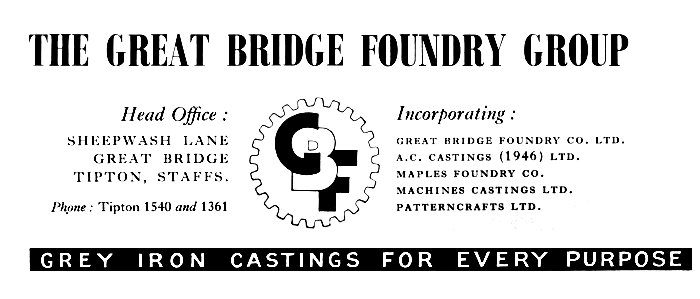
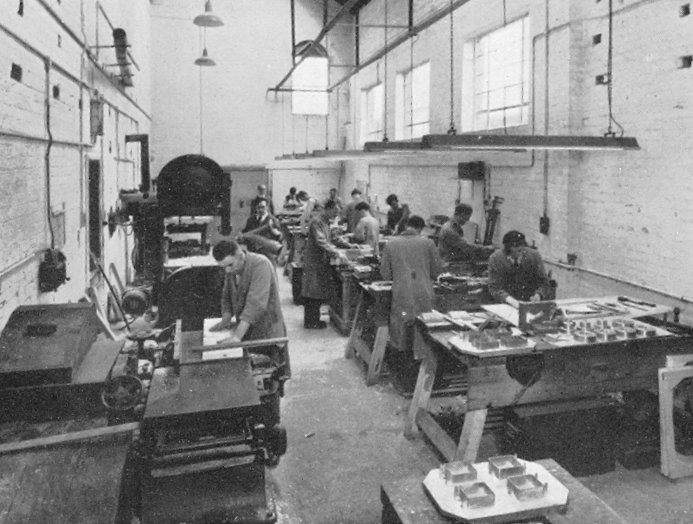
Pattern making at
Patterncrafts Limited. A member of the Great
Bridge Foundry Group.
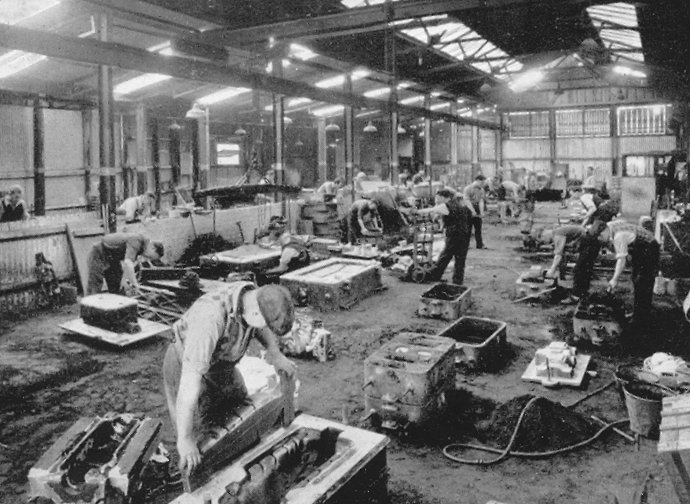
One of the aluminium
foundry bays.
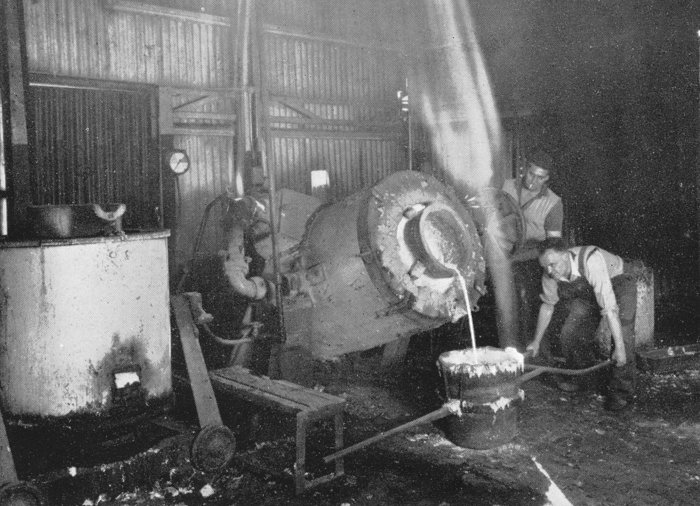
Ready to cast.
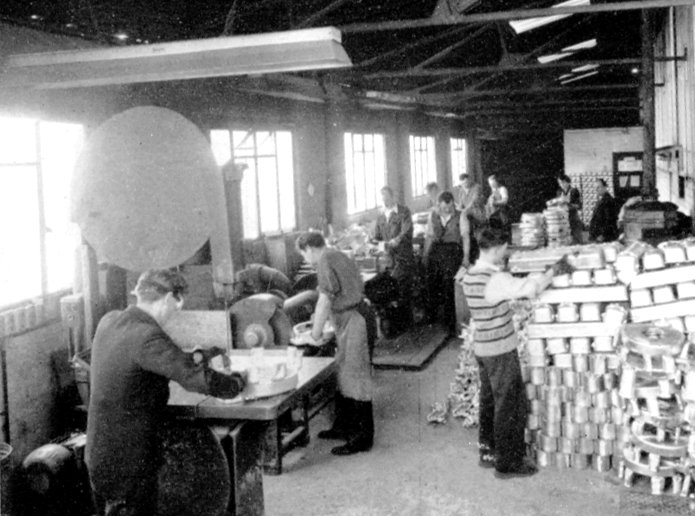
The Felting Shop at A.C.
Castings (1946) Limited.
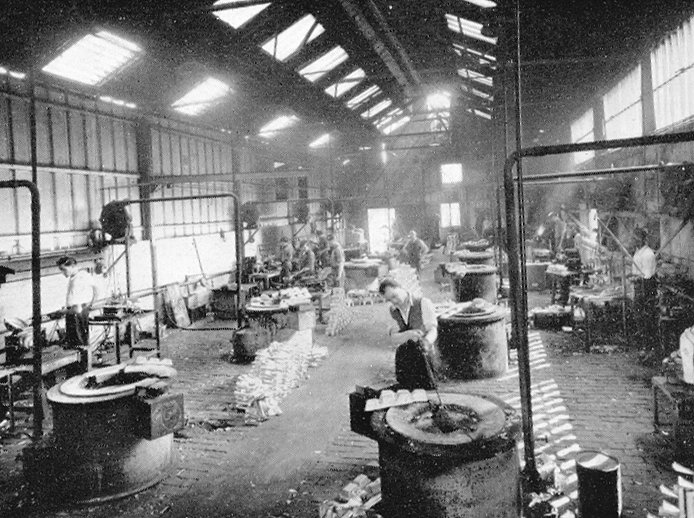
The Gravity Die Casting
Shop at A.C. Castings (1946) Limited.
|
Casting a
light alloy diesel engine crankcase
at A.C. Castings (1946) Limited. |
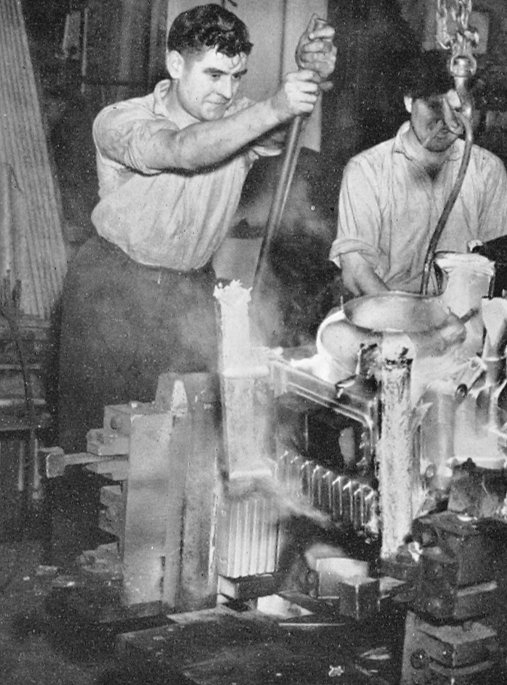 |
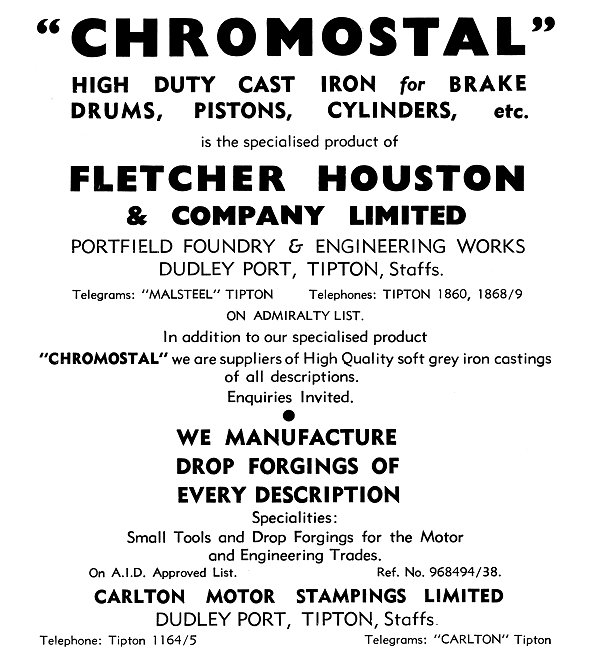
An advert from 1954.
|
An advert from the mid
1950s. |
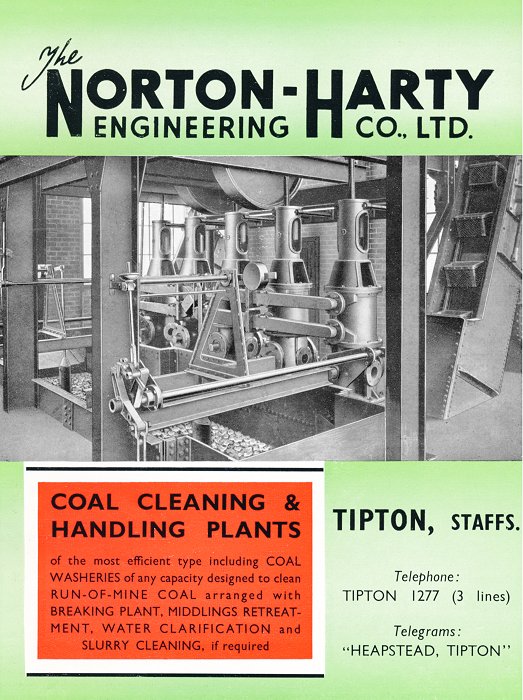 |
Grates and Tiles
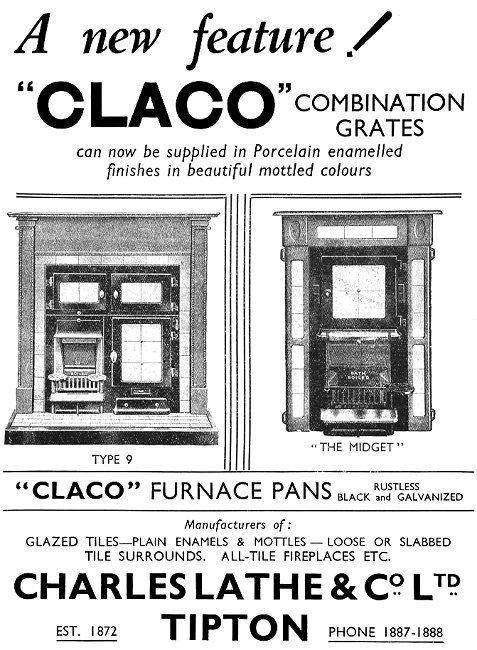 |
Charles Lathe & Company Limited was
founded in 1872 by Charles Lathe, J
.P. to produce a wide range of
products including glazed tiles for
fireplaces etc. and a range of tiled
fire places and grates.
The business was later run by Alfred
Lathe, J.P. and Charles E. Lathe,
grandsons of the founder.
The company's products included
solid fuel burning appliances,
continuous burning grates, convector
grates, ranges, rustless furnace
pans, castings for the building and
engineering trades and for the
railways.
A subsidiary company, Charles Lathe
& Company (Tile) Limited was founded
in 1927. The trade mark of both
companies was "Claco."
The company closed in 1969. |
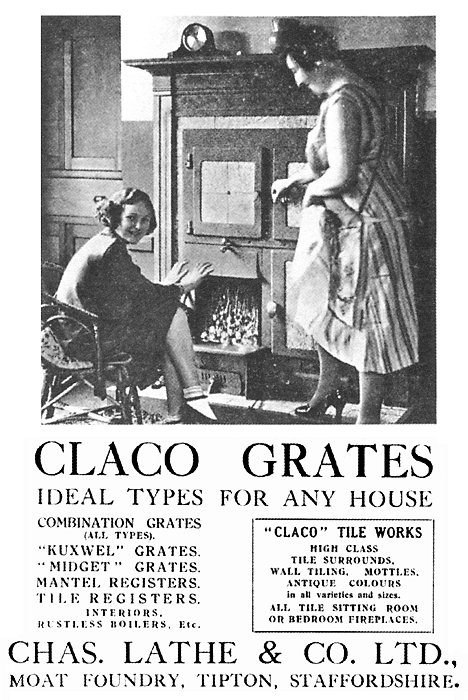
An advert from 1930.
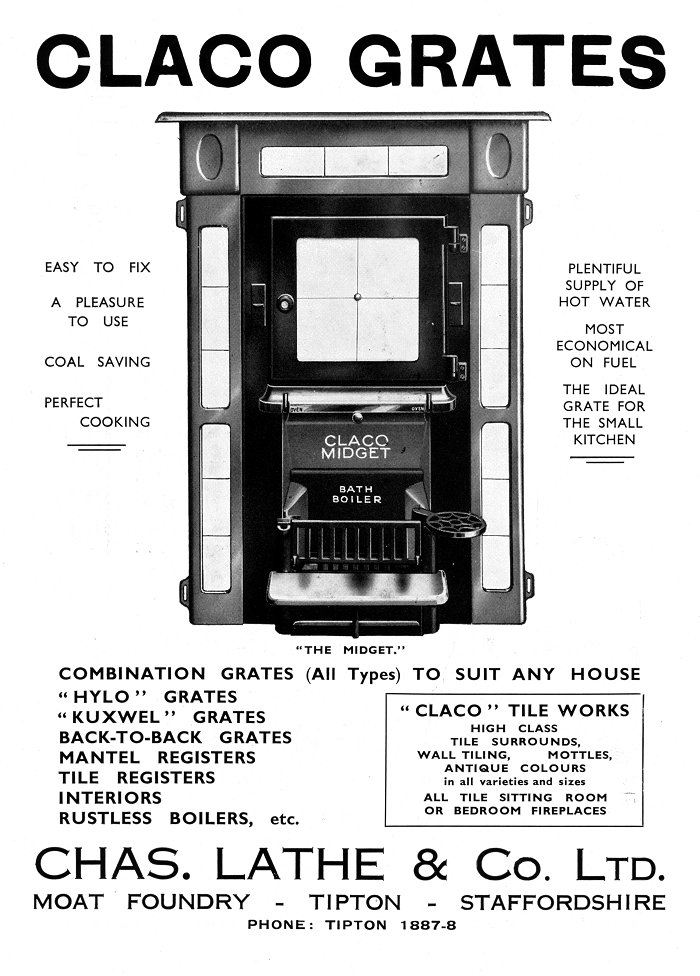
An advert from the early 1930s.
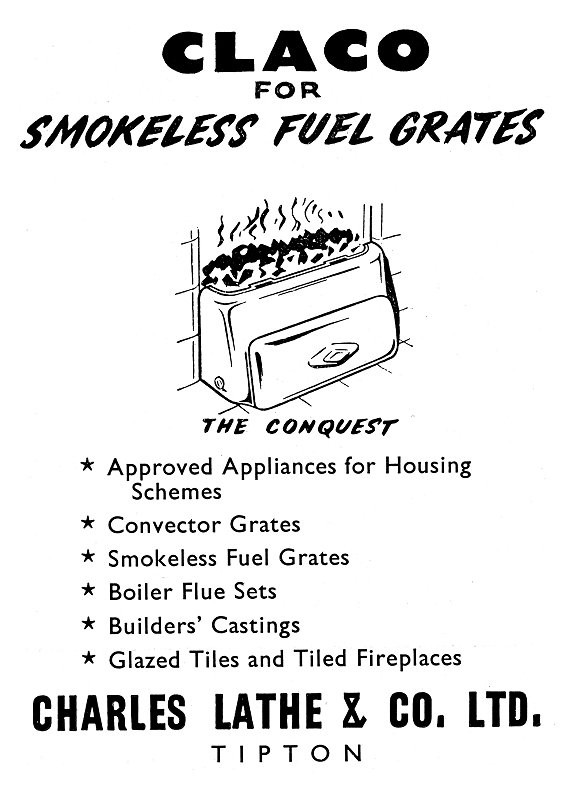
An advert from 1956.

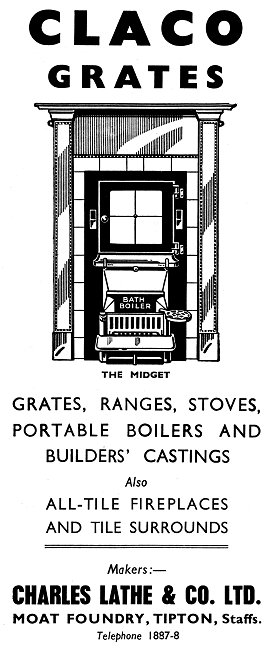 |
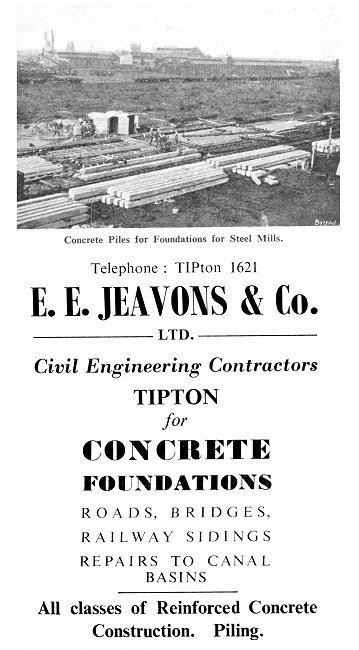 |
|
Two adverts from 1947. |
|
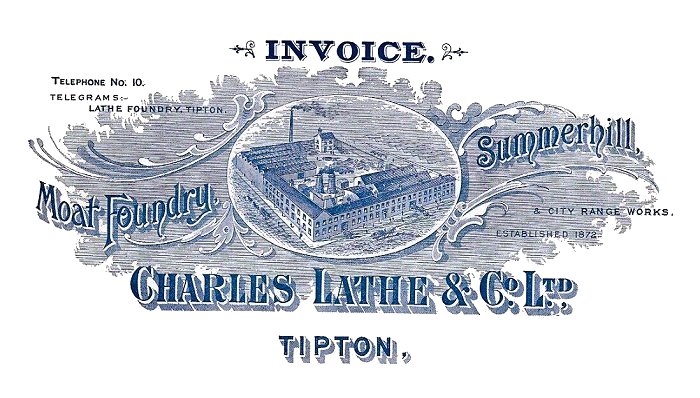
An invoice heading
from 1914.
 |
Sunbeamette Combination grates
were produced by Chatwins
Limited in Market Foundry,
Albion Street.
The
foundry stood next to the canal
where Chatwins Wharf is today.
Chatwins became part of Hale and
Hale (Tipton) Limited of Dudley
Port. |
| |
|
 |
Read about Triplex
Foundry Limited |
| |
|
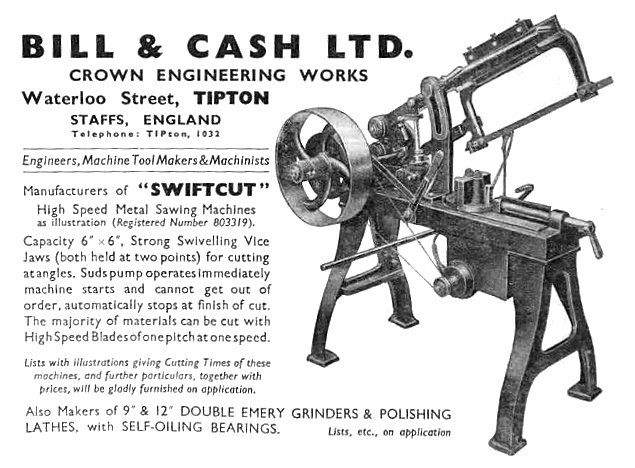
An advert from 1938.
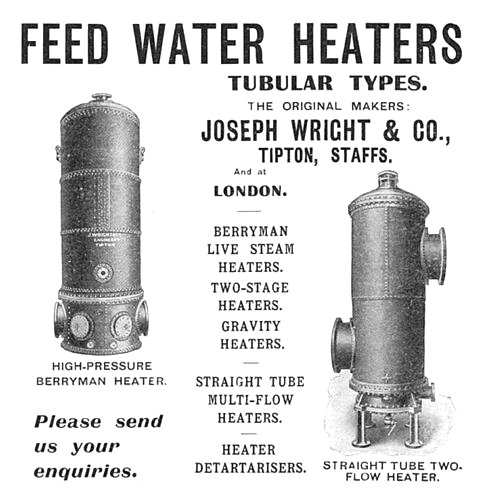
An advert from 1909.
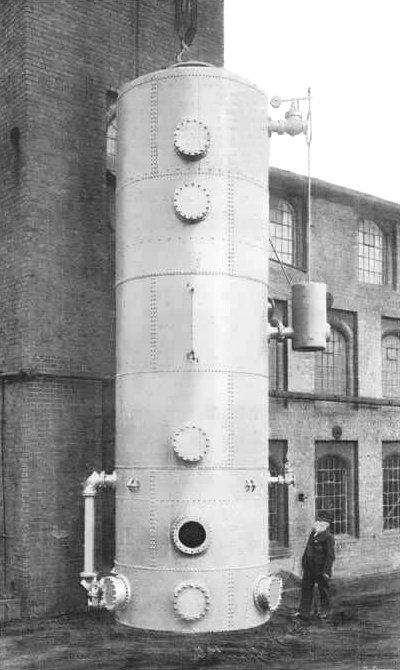 |
A
Joseph Wright & Company
feed water heater from 1898. |
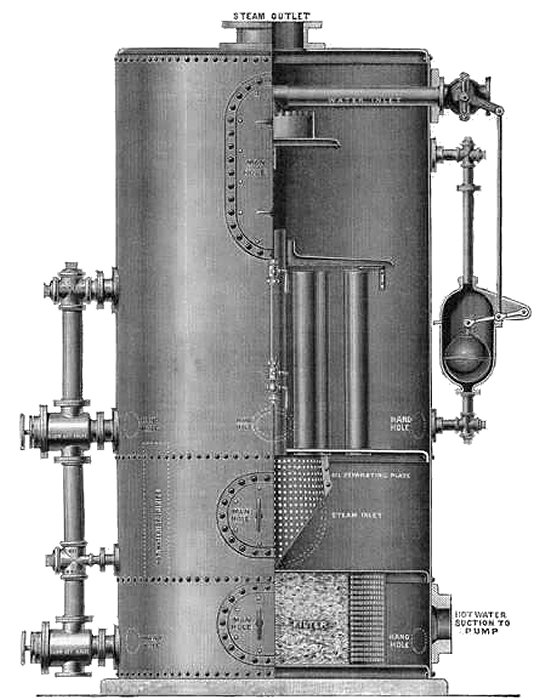 |
A
Joseph Wright & Company
Patent Excelsior Heater,
Filter and Grease Separator from 1895. |
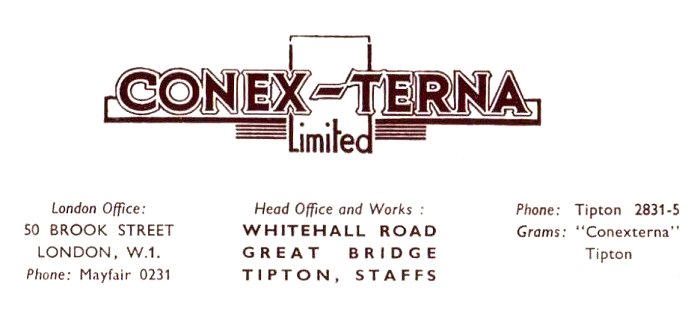
A letterhead from
1947.
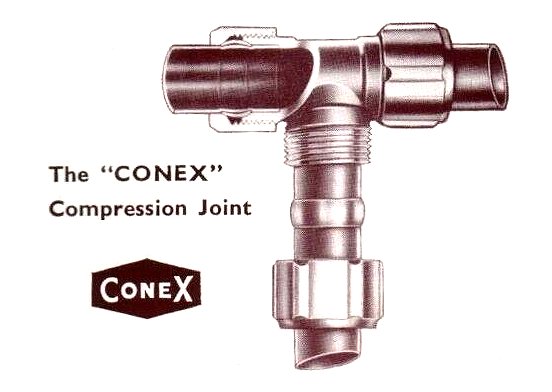
An advert from 1947.
The Tipton Tub and Tube Company
Limited
The Tipton Tub and Tube Company Limited was
founded in 1911 by Albert Parker and
incorporated in 1915.
Production consisted of colliery tubs, air pipes
and general engineering forgings at a site in
Brook Street, before moving to Bloomfield Road,
in 1938. A wide variety of welded and riveted
plate work was fabricated, including "Centriflovane"
grit catchers, invented by Albert Parker, and
widely used in gas works in the United Kingdom
and abroad, to remove the grit from the waste
gases from carburetted water gas plants which
would otherwise escape into the atmosphere. They
have been installed on Lancashire and other
boiler chimneys, and exhaust stacks.
The firm employed a large number of
erectors to erect both the grit
catchers and steel chimney stacks,
which were another of the company's
products. They were sold throughout
the country.
The company also specialised in the
manufacture of elevator and conveyor
buckets, ranging in weight from over
1 cwt, to less than 1 lb. Facilities
were also available to produce plate
work up to ⅜ inch thick
and forgings up to 40 lb. in weight.
The range of goods in regular
production included heavy duty and
special purpose wheelbarrows, coal
and coke chutes, tipping, drop
bottom, radial door and other
special skips, hoppers and pipe
work.
Most of the employees were with the
company for many years, the majority
having started straight from school.
Company Directors included Albert
Parker’s brother, Joseph Parker and
his nephew, John Parker.
|

A
"Centriflovane" grit catcher. |
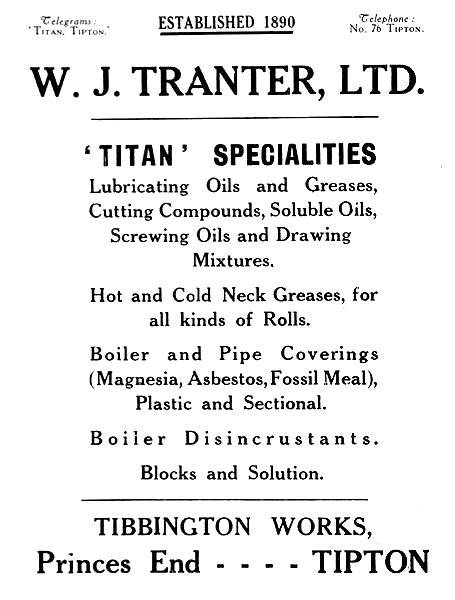 |
W. J. Tranter Limited
W. J. Tranter Limited, of Tibbington
Works, Princes End, founded in 1890,
produced thermal insulation for many
years. The business was very
successful and the large number of
staff carried out contracts all over
the country. Materials used included
asbestos, cork, glass silk, etc.
The firm also supplied lubricating
oils and greases, motor oils and
greases, soluble oils, drawing
mixtures, screwing oils, curriers'
oils, and sulphonated oils, etc.
which were regularly analysed and
tested in the company’s
well-equipped laboratory to ensure a
high standard of quality.
Other products included paint and
bitumen solutions, made in all
colours and grades, from the highest
quality glossy varnish paint to the
cheapest grades for rough coating.
Also gold and aluminium paints. All
materials were sold under the name
of 'Titan' Specialities and were
very well known. |
|
The Vono Company
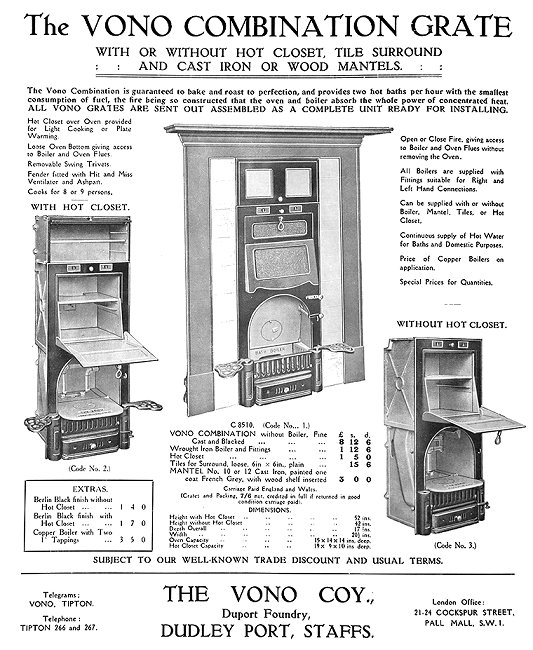
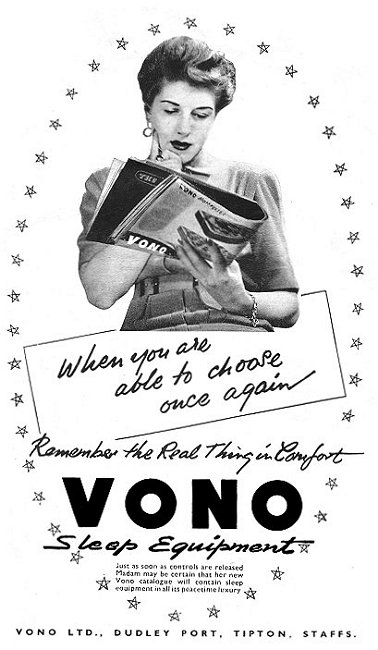 |
The Vono Company, an acronym of
Vaughan Only, No Others, was founded by
Ernest
Vaughan in 1896. At one
time it was Tipton's largest employer.
His son Septimus, went into
partnership with Frederick Reeves, who
founded Revo in 1907. The
Vono factory, called Hope Works, was in
Sedgley Road East, Dudley Port, where
the Vaughan Trading Estate is today.
Vono specialised in the manufacture
of
mattresses
and bedstead fittings. In 1933, products included mattresses, wooden bedstead fittings and
combination and spiral spring mattresses.
Ernest Vaughan married Cecilia and
they moved into a small house on a site
that is now occupied by Burnt Tree
Island. They later moved to 'Greenroyd',
a big detached house with a large garden
in Pedmore, Stourbridge and after the
First World war, to 'Field House', Clent,
which has a Japanese style water garden
that was designed by Gertrude Jekyll in
1914.
In 1939 the firm was incorporated as a
private company.
During the Second World War, products for
the war effort included Bailey Bridges,
pontoons and ammunition. |
| In 1946 the firm became a public
company, concentrating on the production of
perfect sleep equipment; domestic equipment;
wood and metal components required for the
housing programme; engineering accessories
for the motor; aircraft; electrical; gas and
refrigeration trades; speciality castings;
plastic mouldings; fibre upholstery and
components for the railways, and the motor, aircraft
and furnishing trades. |
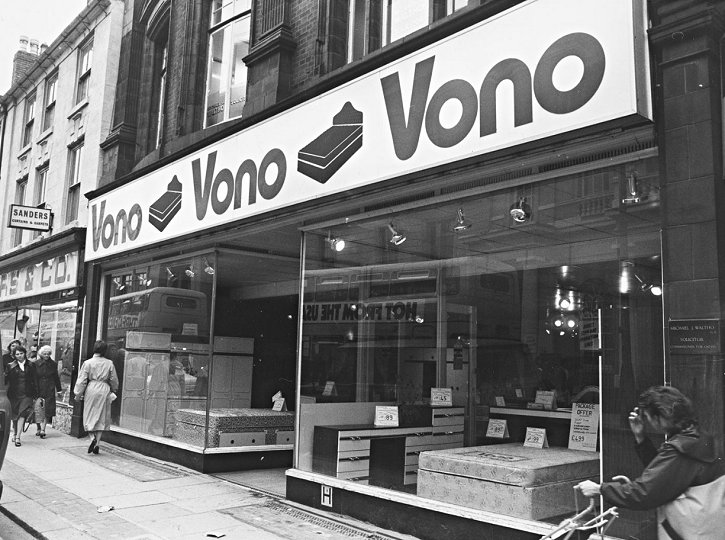
Vono's shop in Queen
Street Wolverhampton.
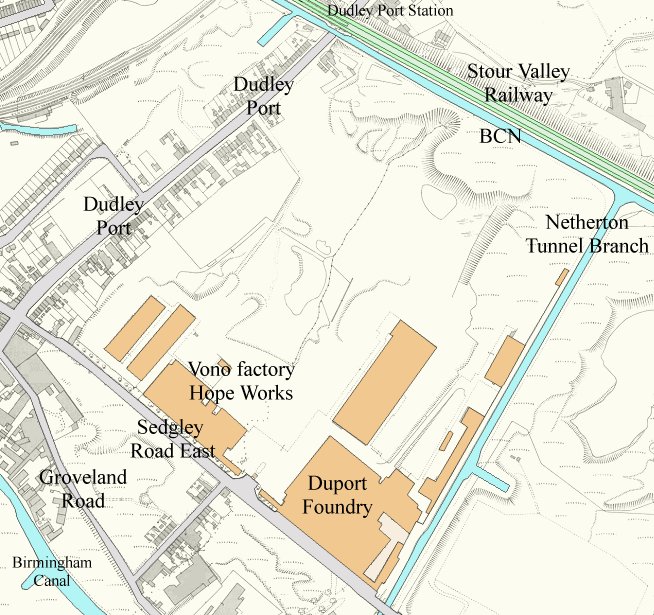
The site of Hope Works and
Duport Foundry.
|
The perfect sleep equipment consisted of
adjustable bedstead castors, bedstead
fittings, divans, metal camp folders,
overlays, spring interior mattresses and
wire mattresses.
In 1950, W. L. Barrows took over as Chairman
and the company name was changed to Vono
Industrial Products, which became Duport in
1956. The Duport name was derived from
Dudley Port. It was initially used as the
name for the iron foundry on the Vono site,
Duport Foundry.
Duport was an industrial holding company
that purchased a large number of
manufacturing companies, including Revo (by
an exchange of shares) in 1956. In 1967
Duport sold the goodwill, patents, and
trademarks of Revo to English Electric. The
street lighting division was sold to Tubes
Limited, who sold and developed the range
under the 'Relite' name. In 1970 Duport
acquired Slumberland Limited, which with
Vono gave it 30% of the British bed
manufacturing market.
By 1980 the steelmaking part of Duport
was in trouble and in 1981 it was purchased
by British Steel. In 1982 the bed making
part of the business was sold to Airsprung
of Trowbridge and in 1986 Duport was
acquired by Williams Holdings, an industrial
conglomerate based at Monmouth. I would
like to thank Jason Vaughan for his help
with this section. |
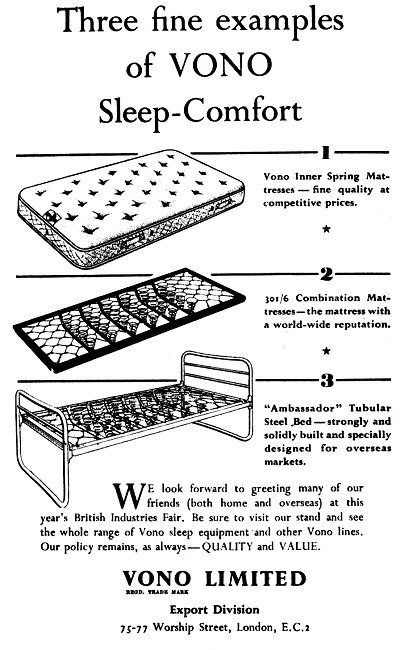 |
| In the 1980s, part of the Vono factory was demolished
by W Hayden & Son Limited, based in Webb
Street, Coseley. The following three photos
were taken during the demolition. They are
courtesy of Andy Hayden. |
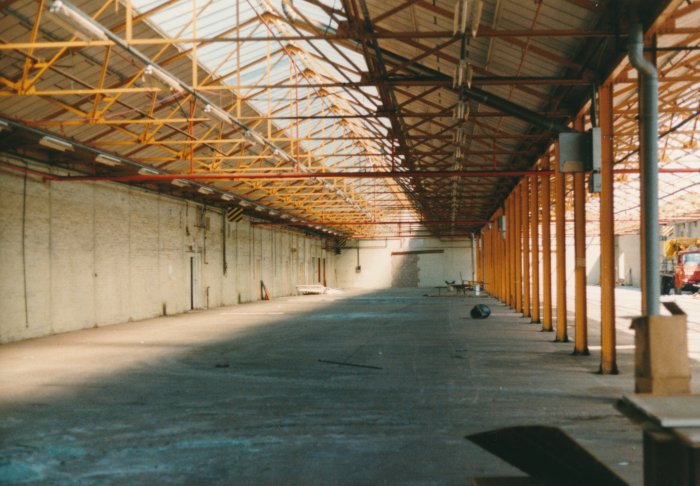
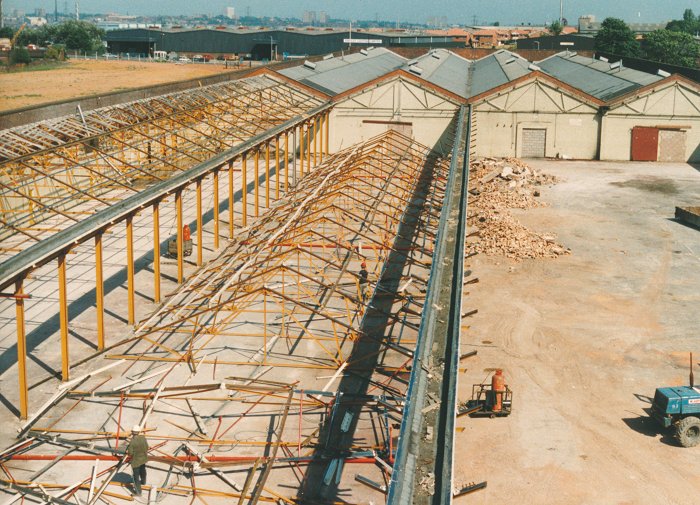
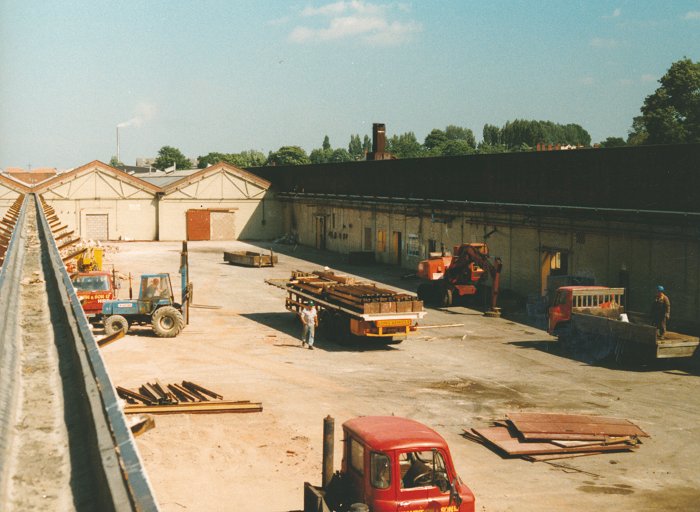
 |
Another business that became part of
Duport was Grovewood Products Limited,
based in Dudley Port. A manufacturer of
kitchen units, fitted kitchens, chairs
and white wood furniture etc. The firm
was well known for its Daintymaid
kitchen units. |
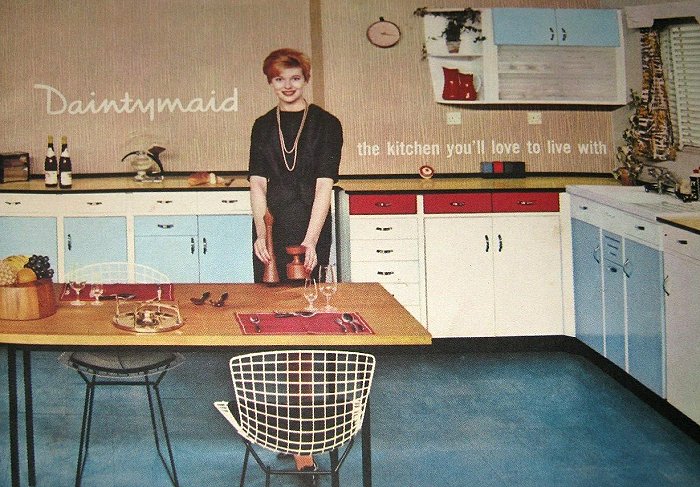
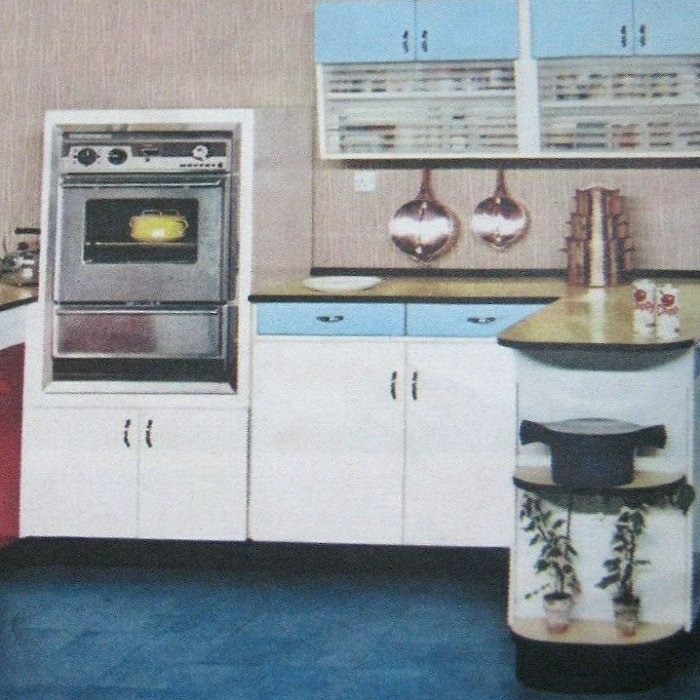
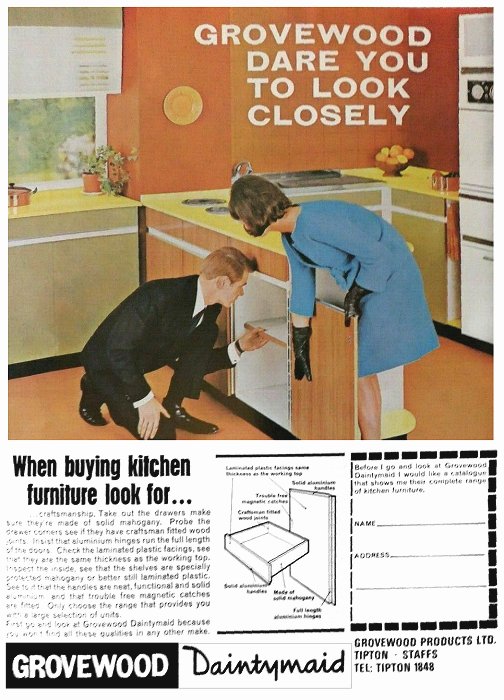
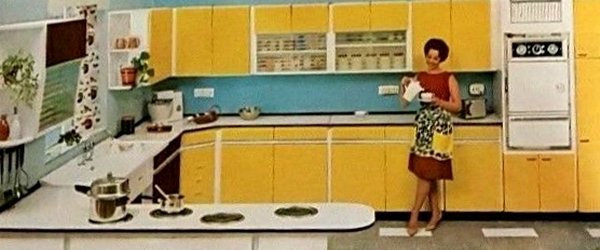
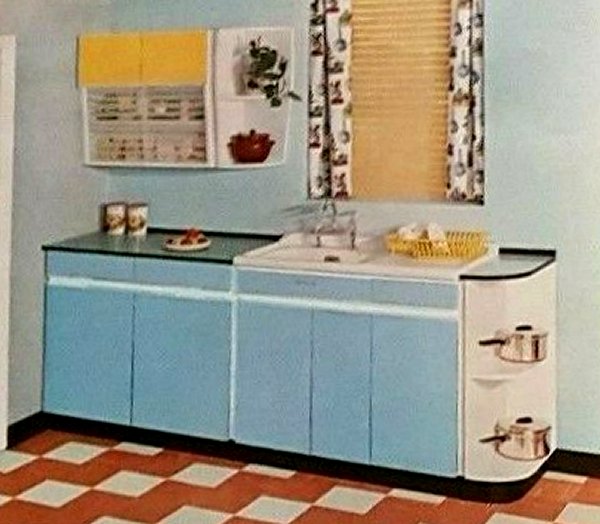
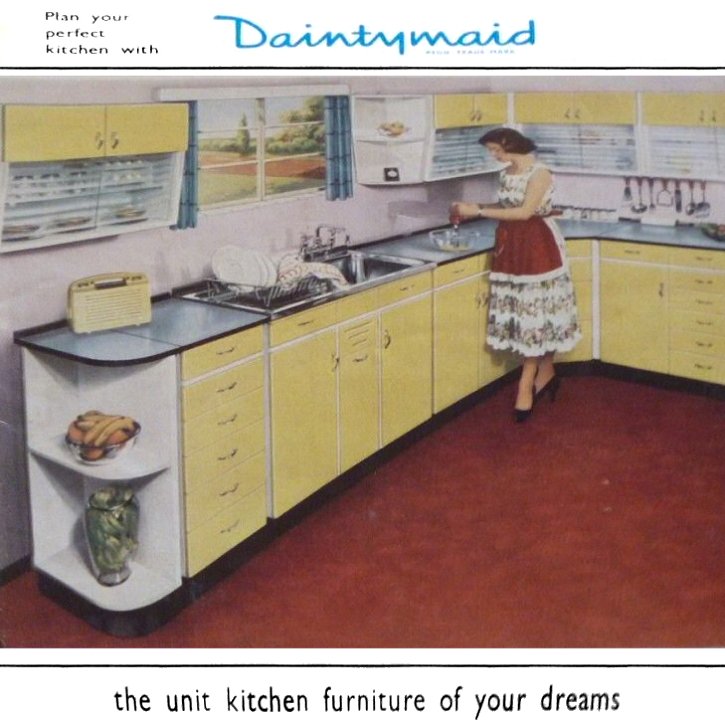
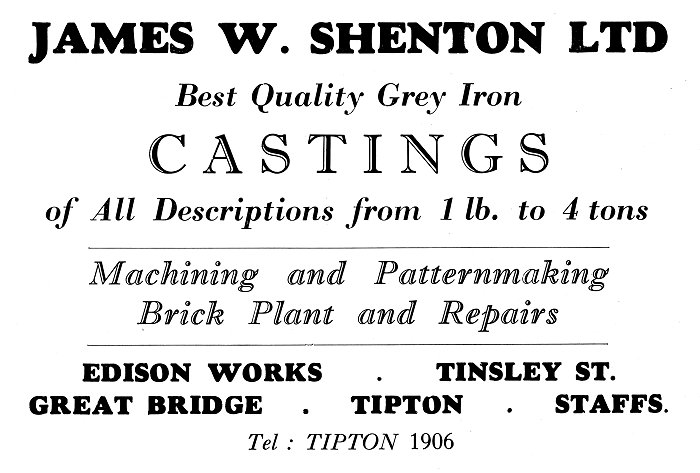
An advert from 1954.
|
James W. Shenton
Limited has always given special attention
to breakdowns and repairs. The firm was
established in 1905 and has its own pattern
shop, machine shop and fitting shop.
Products include good quality grey iron
castings from several ounces up to four tons
in weight, including loam-moulded castings,
one-off castings, small repetition jobs for
many trades, including machine tools,
general engineering, printing machinery,
rolling mills, scrap merchants, textile
machinery, gas and electricity undertakings
and brick and tile machinery. Other products
include Crocodile shears for scrap
merchants, sand mills for foundries and all
types of special machinery to customers'
specifications along with the Norton range
of presses, cast iron bar weights, block
weights, roller weights, calibrated test
weights and machine tool castings of an
intricate nature. Long experience in rolling
mill plant enables the company to carry out
urgent repairs when necessary.
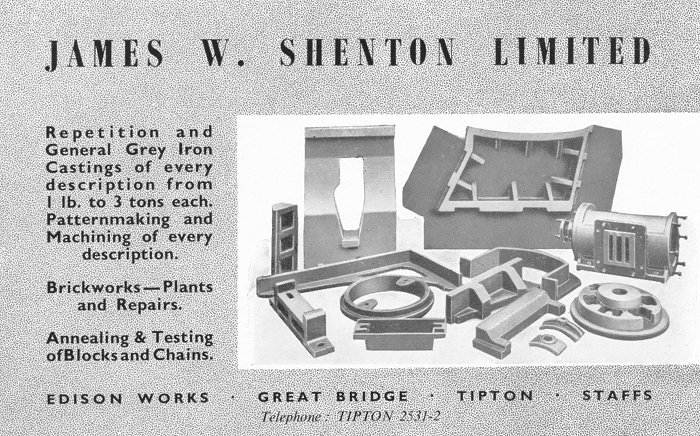
An advert from the mid
1950s. |
|
Wellington Tube Works Limited
Wellington Tube works, founded by Joseph Aird,
opened in 1872 at Great Bridge and stood between Great
Bridge Street and Brickhouse Lane, alongside
Ryder's Green locks on the Walsall canal.
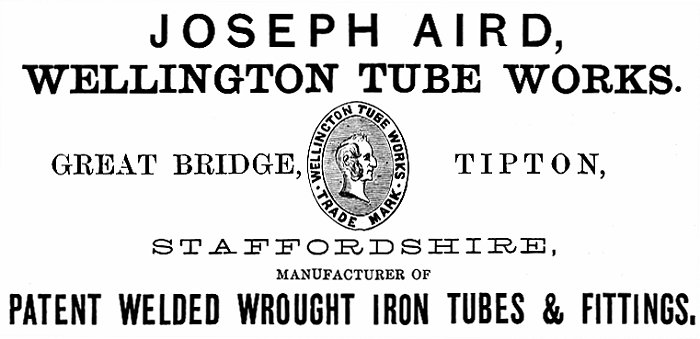
An advert from 1872.
The firm specialised in large lap-welded
pipes and took out several patents in the
1890s. In 1891 Joseph Aird took out a patent
for a connector to join two lengths of tube
that were formed with a flange that was
grooved to receive a piece of asbestos or
other packing. The flanges were held
together by two clamping collars held in
position by nuts and bolts. An American
patent was obtained on 5th July, 1892.
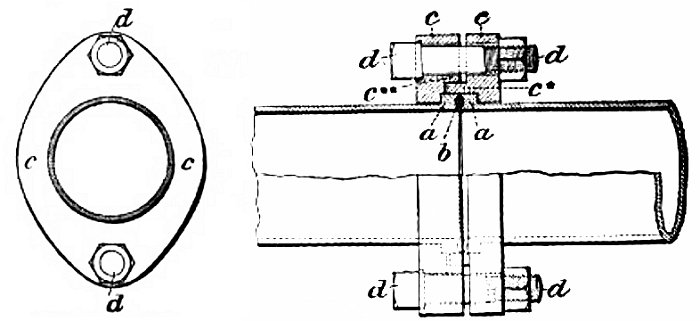
From The Mining
Journal, 4th July, 1891.
The following article
is from 'The Engineer', 23rd April, 1897:
|
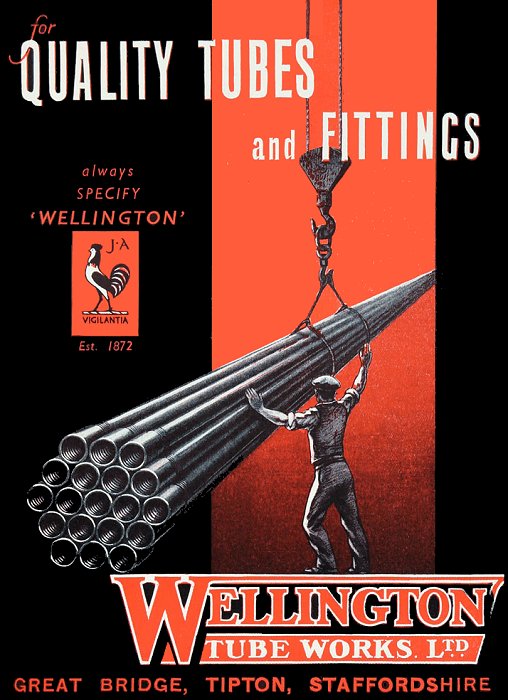
An advert
from 1938. |
In 1926 Mr. Douglas W. Turner,
Company Chairman was elected
Managing Director and in 1937
the firm exhibited a range of
products at the British Industries Fair,
including mild steel and
wrought iron tubes and fittings for
gas,
water, steam, etc. There were
also loose flanged tubes, point
rodding and
special pipework.
In 1955 a patent was taken out
for gilled
metal tubes and in 1959 a patent was
acquired for finned metal tubes.
The company formed Wellington
Tube Holdings which consisted
of: Wellington Tube
Works Limited, Wellington
Engineering Works Limited, Gibbons (Dudley)
Limited, The Stampings
Alliance Limited, F. J. Ballard and
Company Limited, and the Thermic Equipment
and Engineering Company Limited.
In 1970 Wellington Tube
Holdings sold the tube works for a
substantial amount of money to
invest in other projects.
|
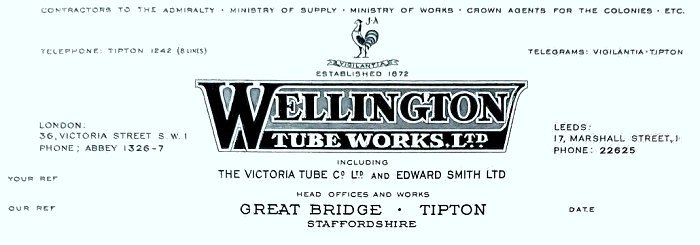
A letterhead from the
1950s.
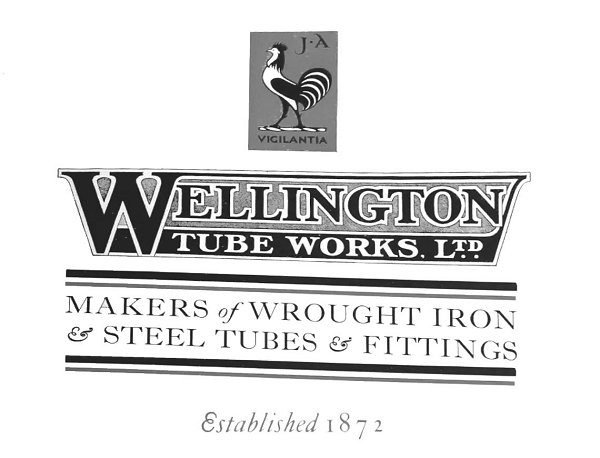 |
|
On the 11th May
1931, the Prince of Wales visited the
factory along with Lord Ednam and met
the company chairman and directors and
witnessed the production of the firm’s
wrought iron tubes.
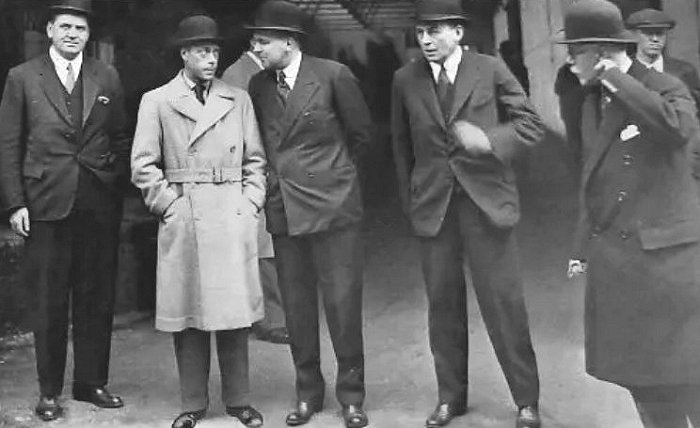
The Prince of
Wales with the chairman and directors.
The company specialised in the
production of gas, water, steam tubes
and fittings and could test them up to
pressures of 1,500lbs per square inch.
Large stocks of the products were kept
in the warehouse.
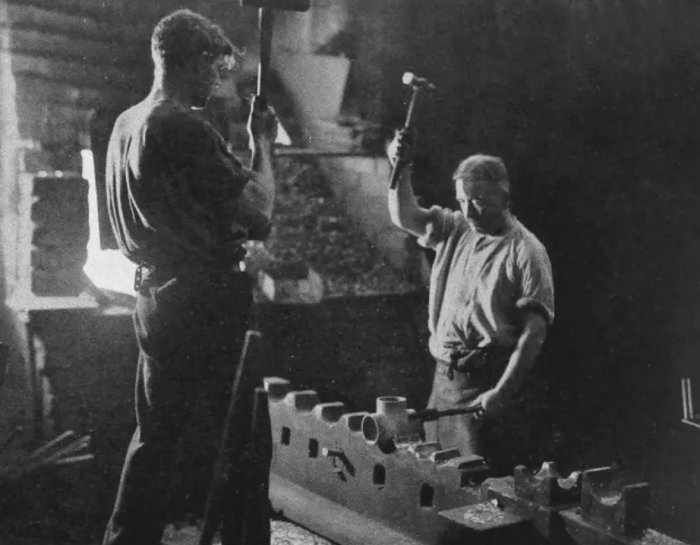
Working on pipe
fittings in the forge.
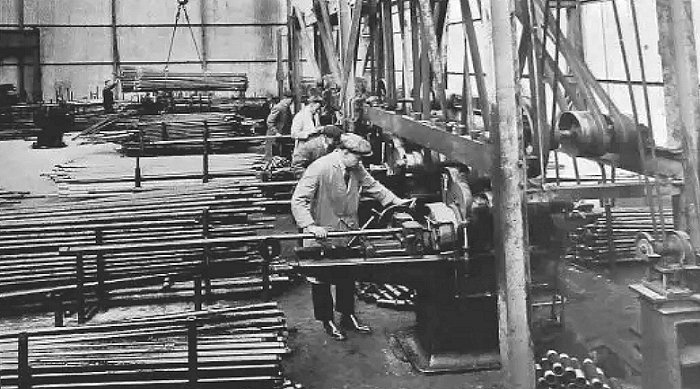
Part of the tube
screwing department.
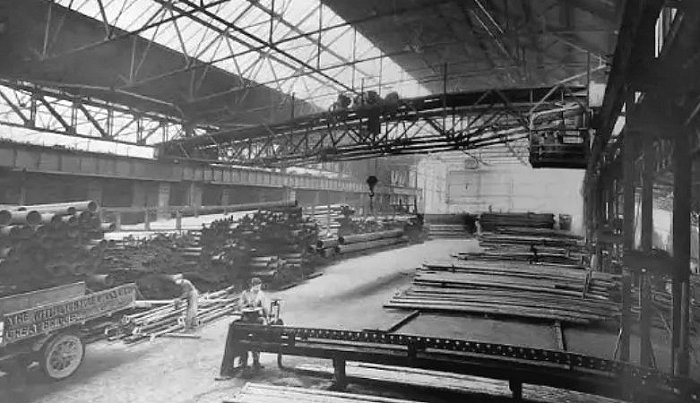
Part of the large
tube finishing shop.
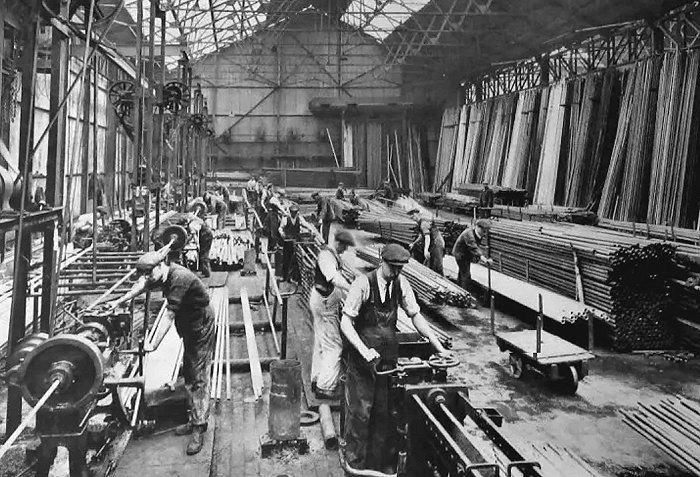
Cutting and
screwing machines and hydraulic test
pumps.
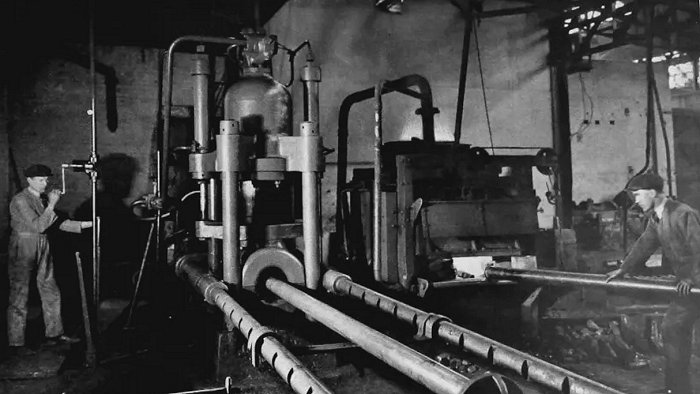
A hydraulic press. |
|
Static air-cooled heat exchangers were first
used widely where water supplies were
inadequate, polluted or non-existent.
The Heat Exchange Division of Wellington
Tube Works Limited, Great Bridge, developed
a range of air-cooled equipment which in two
basic types, could deal with any heat
exchange problem of any size.
The Wellington heat exchangers were designed
to be used worldwide, in several different
forms ranging from a single fan to multiple
fans. They were easy to install and
extremely reliable. |
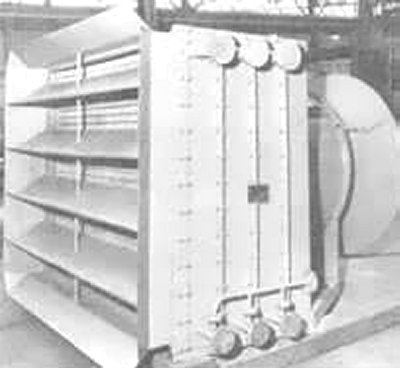
A small Wellington
heat exchanger. |
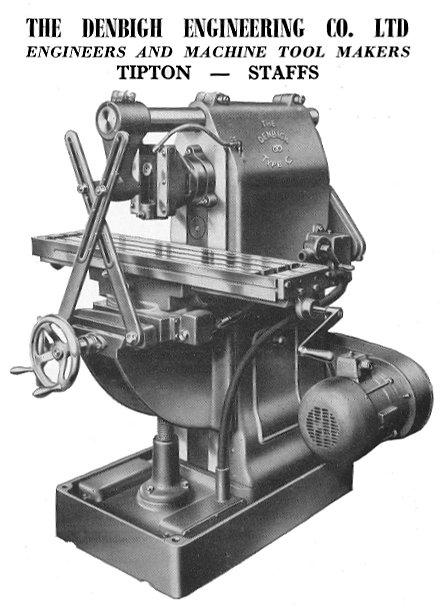 |
The Denbigh Engineering Company Limited
was founded in 1902 to produce the 'Denbigh'
range of machine tools, vertical drilling
machines, horizontal milling machines, power
hacksaws, and fly presses. The products
were sold through machine tool merchants and
agents throughout the world. |
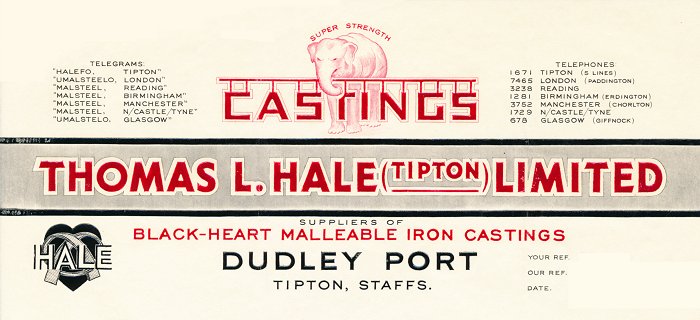
A letterhead from 1937.
| Hale and Hale of Dudley Port, were in
business in the 1930s as Thomas L. Hale
(Tipton) Limited. The firm produced castings
in ‘blackheart’ malleable iron and steel
alloy. Hale and Hale (Tipton) Limited was
incorporated as a private limited company on
the 12th October, 1936.
Customers included the Admiralty,
the War Office, the General Post Office,
railways at home and abroad, ship builders,
electrical manufacturers, the agricultural
industry, the dairy industry, textile
machinery manufacturers, motor vehicle and
cycle manufacturers. In 1946 the firm took
out a patent for improvements to pit props.
The Chairman in the 1940s was W. Edgar
Hale.
The firm had a stand at the British
Industries Fair in 1950 and advertised the
following products: all kinds of
‘blackheart’ malleable castings, both
machined and un-machined, for railways,
electrical manufacturers, shipbuilding,
agricultural manufacturers, mining, building
and general engineering. The firm also
supplied government departments and public
bodies.
Chatwins Limited of Market Foundry,
Tipton became part of the company. |
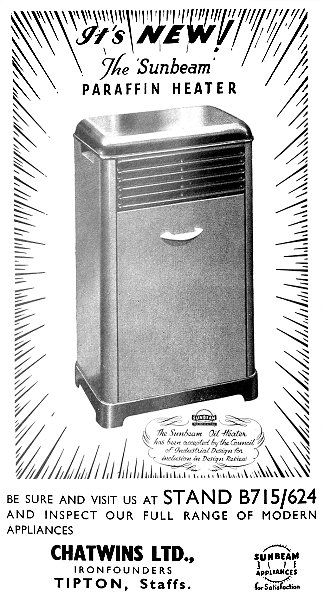
An advert from 1957. |
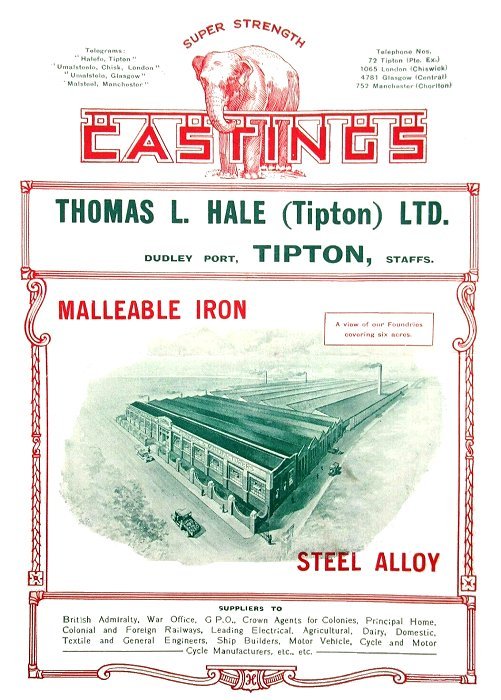
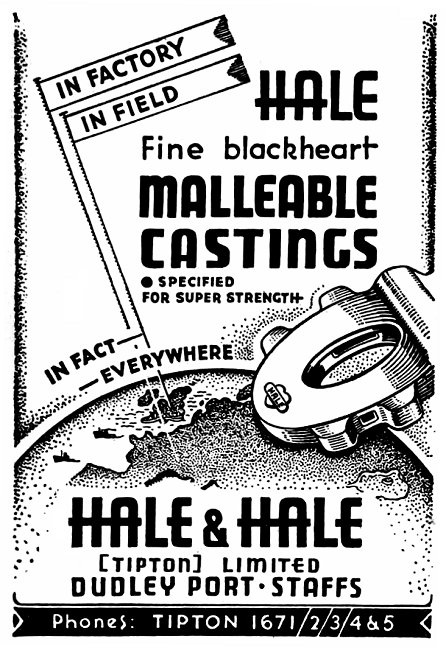
An advert from 1946.
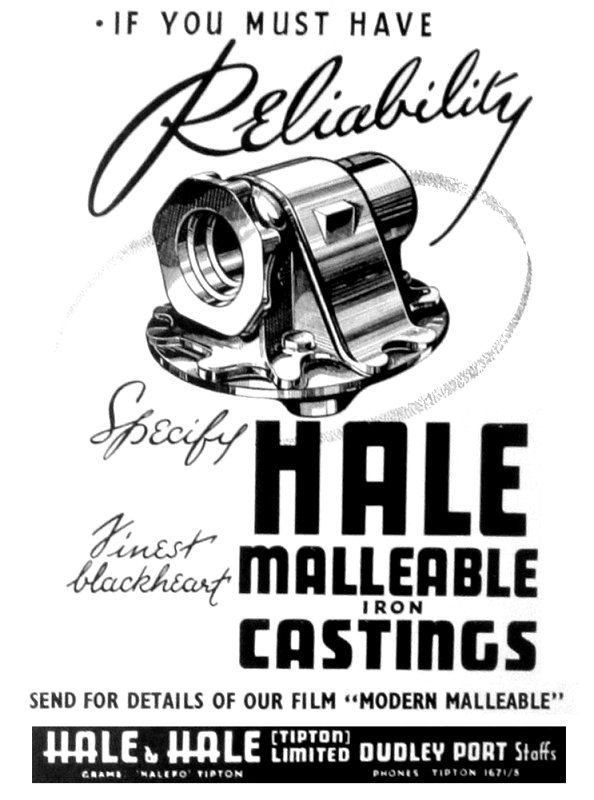
An advert from 1957.
| Hale and Hale (Tipton) Limited went into
voluntary liquidation in 1998 as can be seen
from the notice below, that appeared in the
London Gazette, on the 30th July, 1998. |
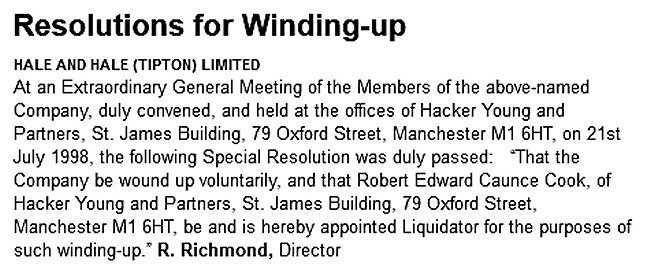
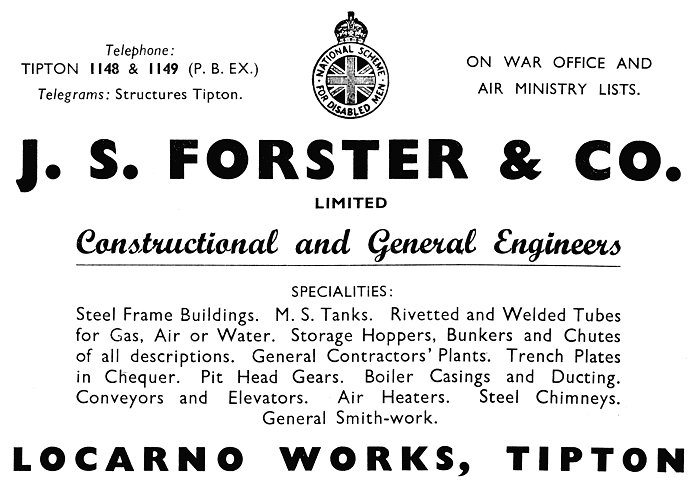
An advert from 1947.
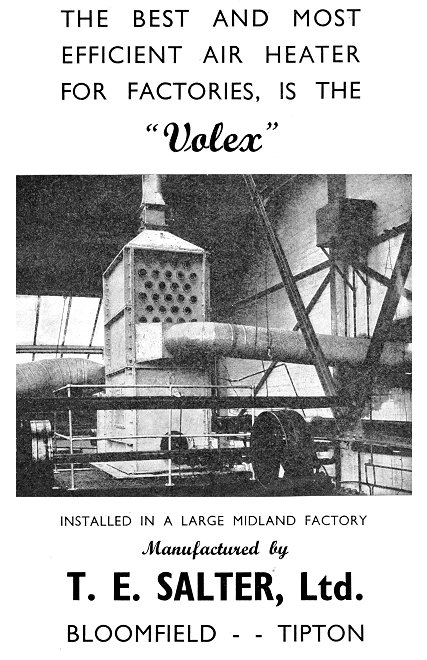
An advert from 1947.
|
W. G. Allen
and Sons
W. G. Allen and Sons
Limited was founded by William George Allen, in
1860 to manufacture pit tubs. William George
Allen was also licensee of the Rising Sun pub in
High Street, Princess End. After his death on
the 14th July, 1882, his widow Mary Ann took
over the running of the business and the pub,
which was next to the factory.
Around 1900, the company
introduced a mild steel brewing boiler for use
by publicans who wished to brew their own beer.
The boilers were initially riveted, but later
welded. They were very successful and large
numbers were sold.
In 1908, W. G. Allen and
Sons Limited was put into voluntary liquidation
and in 1909 a private company W. G. Allen and
Sons (Tipton) Limited was formed.
Products included colliery
equipment, boilers, heating and general
engineering. The senior director, G. A. Allen
died in 1920. Two years later the Directors were
A. E. Allen and Albert Weddell, who became
Chairman. The business concentrated on colliery
engineering, iron and steel plate making, iron,
steel or wood colliery tubs, colliery air pipes
and low-pressure piping. Also portable railways
and rolling stock.
|
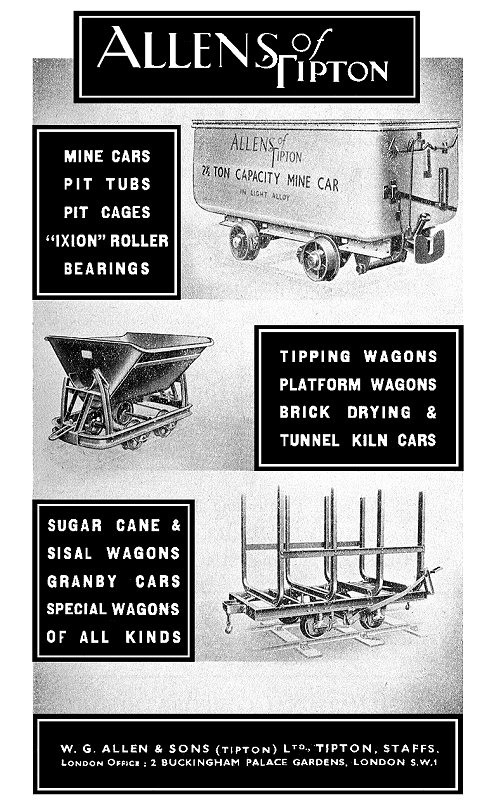
An advert from 1865. |
|
In 1939 the business went
public. Products at that time included pit tubs,
light railway plant, welded steel work,
industrial and domestic boilers and radiant
panels. In 1949 Albert Weddell died and was
replaced as Chairman by Arthur Dyson M.I.C.E.
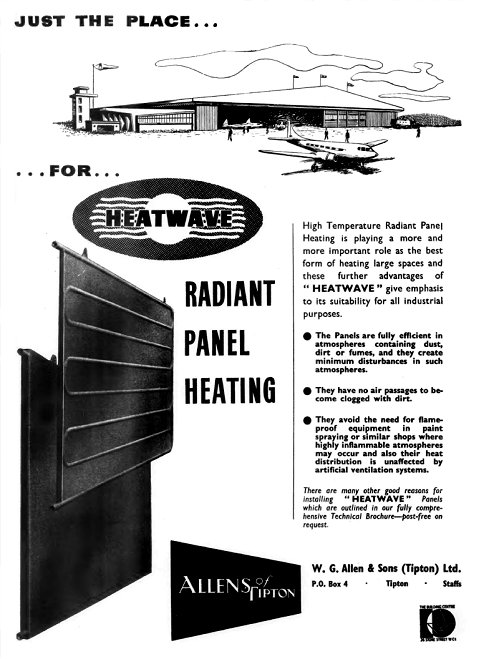
An advert from November
1954.
In the 1960s the firm
became part of the W. G. Allen and Sons (Tipton)
Group and in 1961 the firm concentrated on
colliery, light railway and mechanical
engineering, welded fabrications in mild and
stainless steels and light alloys. Products
included colliery tubs, mine cars, "Ixion"
precision roller bearings and roller bearing
wheels and axles, safety couplings for mine
cars, light railway wagons, colliery air pipes
and pit cages in steel and light alloys, hydro-mech
tipplers, oil fired heaters and heatwave radiant
panels. There were 550 employees.
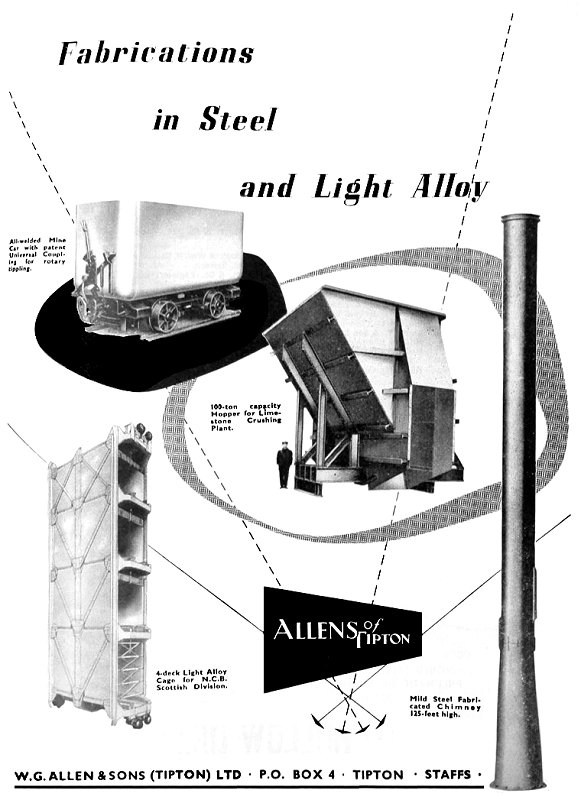
An advert from 1960.
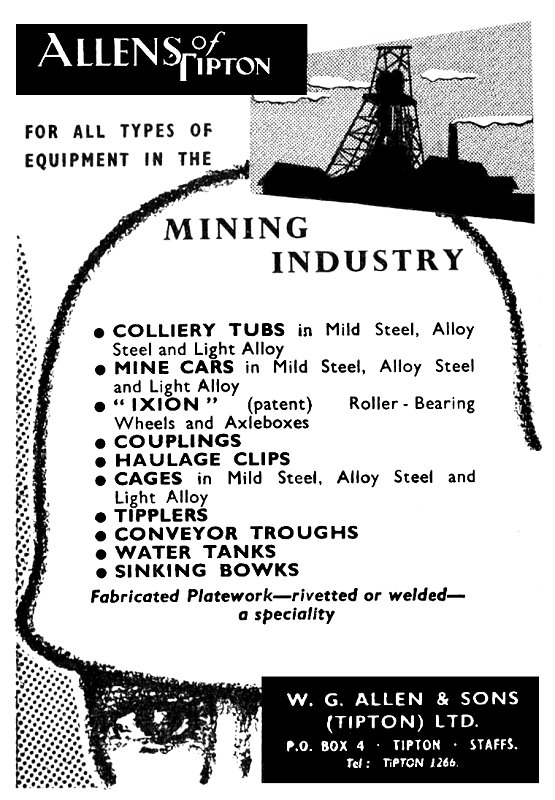
An advert from 1960. |
| In 1968 the firm acquired
Perrymatics and in 1969 Allen Ygnis Boilers
Limited. The company was involved in central
heating and engineering, but Allens of Tipton
made a loss. In 1981 there was a great reduction
in the demand for oil and gas fired boilers and
air heaters and in 1984 the company went into
liquidation. Most of the assets and the
subsidiaries were acquired by Stone
International in 1985. |
 |
G. H. Whitehouse & Son
In 1902 Mr. G. H. Whitehouse entered into
partnership with John Tudor and Herbert Onions
to start in business as G. H. Whitehouse &
Company, at Great Bridge Engineering Works,
reconditioning steam plant. The business
soon specialised in contract machining and
machine tool work.
During World War One the firm produced
munitions including 4.5 inch shells.
After the war, trading conditions were very
difficult. Mr. Whitehouse had to run the
business alone because his two partners had
died. The firm then began producing equipment
for the Royal National Lifeboat Institution
including lifeboat launching keelways.
The firm also developed and patented an
improved gas control unit that was sold under
the name 'Sentinel'.
|
| In 1937 Mr. G. H. Whitehouse was killed in
an air crash whilst on business on the
continent. Luckily his son, Mr. H. G. Whitehouse
was able to take over, having just returned from
the USA. In 1939 at the outbreak of war, the
company became one of the leading companies
specialising in the reconditioning of machine
tools and also produced large quantities of
heavy brake drums for aircraft. The firm also
designed and patented a universal joint which
sold in large quantities. After 1945 the firm
specialised in the design and manufacture of
special purpose machinery and the manufacture of
racing plates. |
|
John
Cashmore Limited
A once well-known Great
Bridge company was John Cashmore Limited, iron
and steel stockholders, dealers in new and used
machine tools, with a breakers yard, where a
large number of British Railways’ steam
locomotives were broken-up for scrap at the end
of the steam era.
The business was located
off Bagnall Street, Golds Hill, alongside the
Tame Valley Canal and the section of the South
Staffs Railway line that ran between Wednesbury
and Dudley. |
|
The firm also had a similar
factory in Newport South Wales, alongside the
River Usk, where many ships and steam
locomotives were scrapped.
In October 1926 Cashmores
acquired and demolished the Bromley Ironworks at
Brierley Hill; and in November of that year
acquired and demolished the Bromley Ironworks.
John Cashmore died in 1932
at the age of 92. The family continued to run
the company which became quite successful. In
1939 the Directors were: Frederick W. Cashmore,
Ernest E. Cashmore, Harold V. Cashmore, John
Venables, Arthur Smith and John E. Cashmore.
John Venables, soon became Managing Director,
followed by his son Stuart.
The firm specialised in
salvaging scrap metal from demolished factories
and foundries, and also scrapping old ships at
Newport, and old steam locomotives at Great
Bridge and Newport.
After the Second World War,
Cashmores installed machines to cut coil strip
steel into sheets for manufacturers and began
stocking stainless steel. |
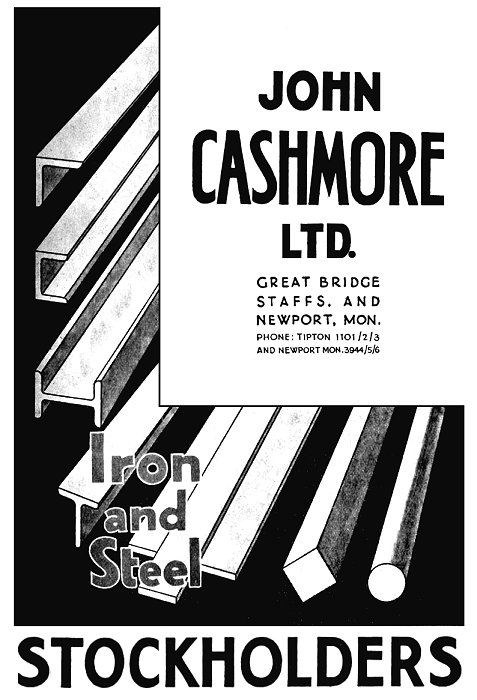
An advert from 1945. |
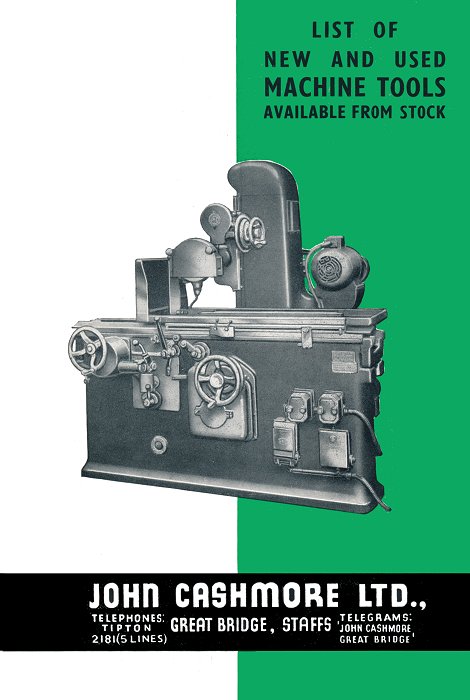 |
The company's stock of
machine tools included:
Air Compressors
Bandsawing Machines
Bending and Straightening Rolls
Billett Breaking Machines
Horiz. & Vertical Boring Machines
Capstan Lathes
Cold Saw Machines
Drilling Machines
Grinding Machines
Hammers
Hydraulic Plant
Lathes
Milling Machines
Planing Machines
Screwing Machines
Shaping Machines
Slotting Machines
Turret Lathes
Thread Milling Machines |
|
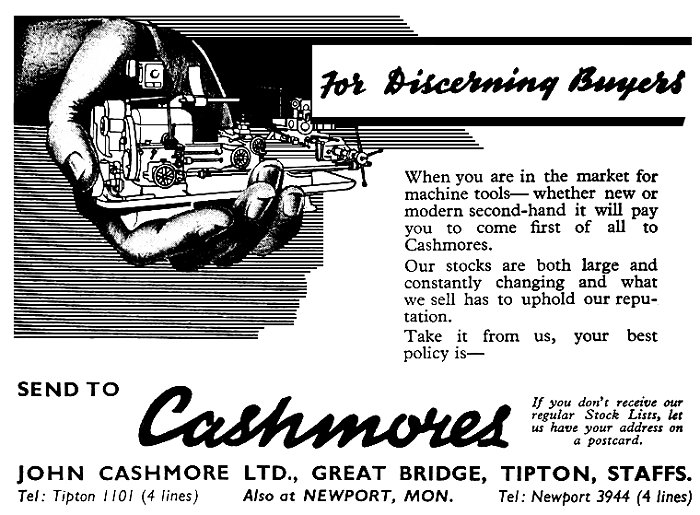
An advert from 1950. |
|
The business greatly
expanded thanks to the efforts of Norman
Cashmore, who died in June 2009 at the age of
96.
He had been born in Tipton
in 1913 and won a scholarship to Queen Mary’s
School in Walsall. He joined the family business
in 1972.
The company was floated on
the stock market in 1959 and by the early 1970s
was one of the country’s largest and most
profitable steel stockholders, with warehouses
throughout the country.
The shareholders agreed to
sell the business to Glynwed International, the
West Midlands-based conglomerate, in 1972.
Mr. Cashmore served on the
Glynwed board before retiring. |
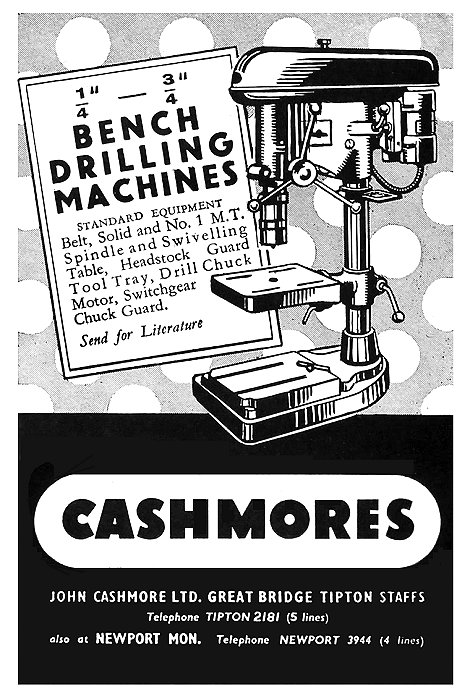
An advert from 1952. |
|
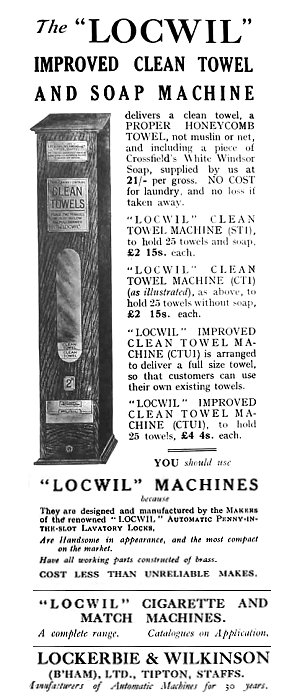
An advert from 1929. |
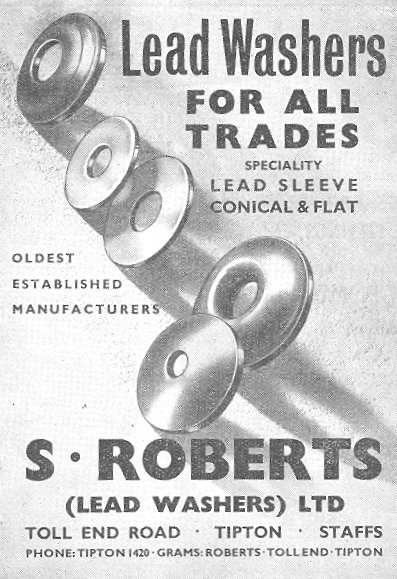
An advert from 1958. |
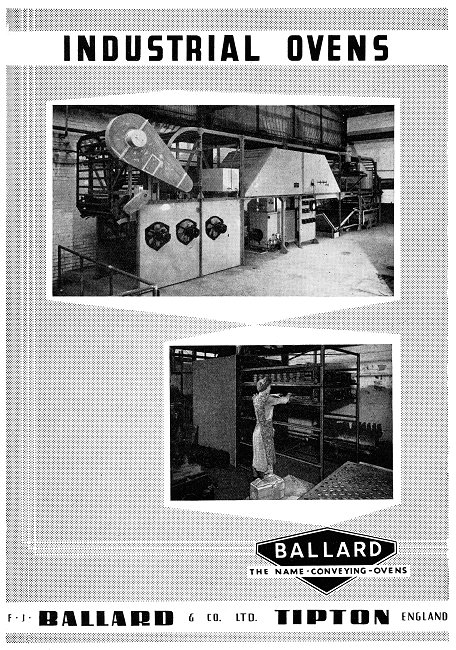
An advert from 1958.
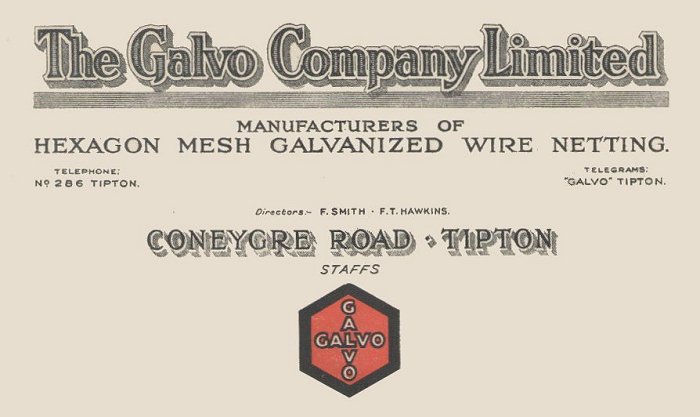
A letterhead from the early 1930s.
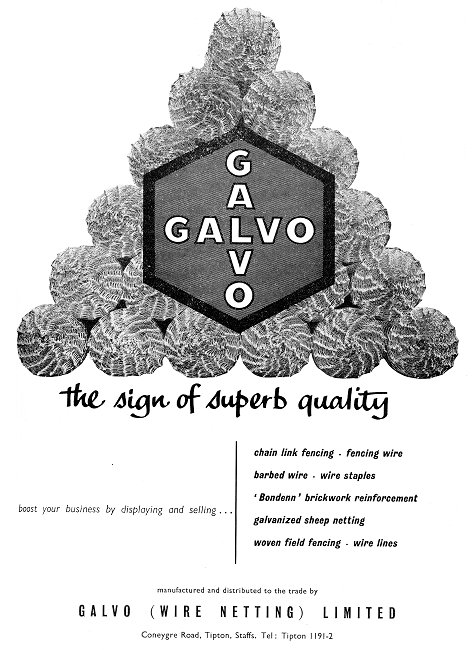
An advert from 1958.
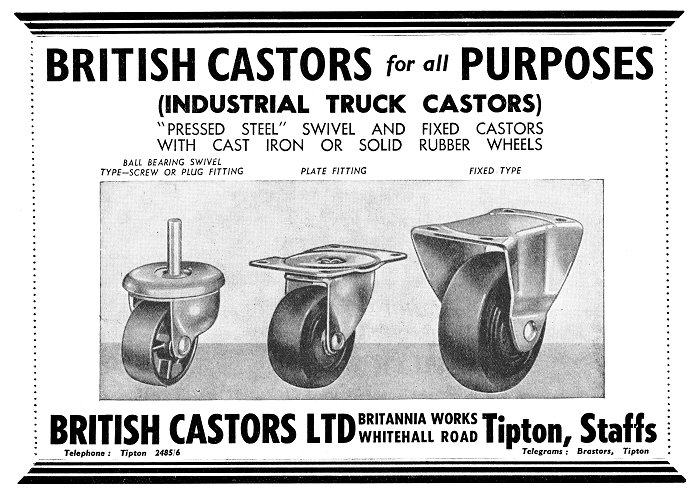
An advert from 1958.
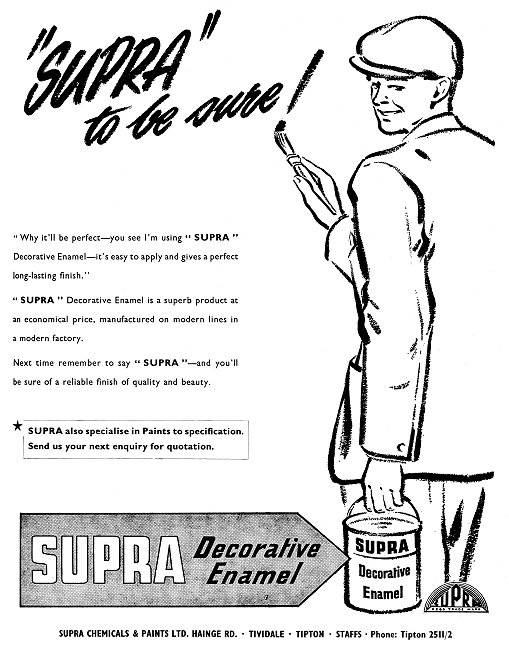
An advert from 1958.
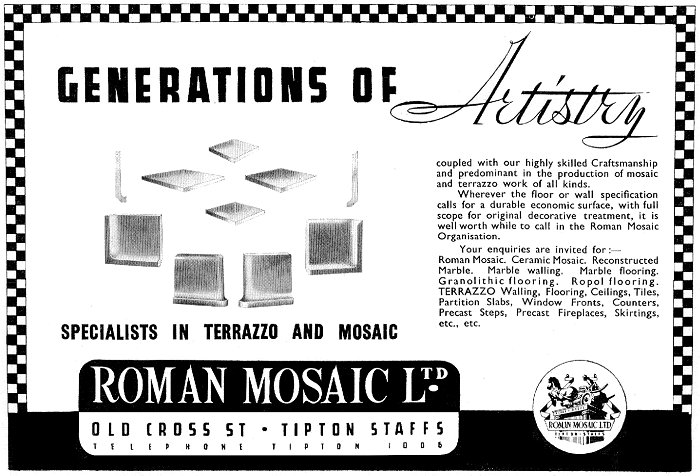
An advert from 1952.
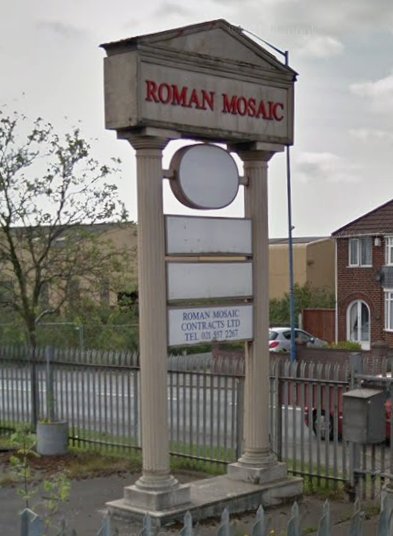 |
The Roman Mosaic factory was
once a familiar sight in Bloomfield Road. The
business moved there from its previous premises
at Burnt Tree Island, Dudley, in 1988.
The factory was well known for
importing and distributing ceramic tiles and
glass mosaics and was also well known for its
large Roman-themed murals.
Unfortunately the business
closed in 2007 and remained derelict for many
years. During this time it was broken into many
times and anything that was easily removable was
stolen.
The factory was demolished and
new houses have been built on the site. |
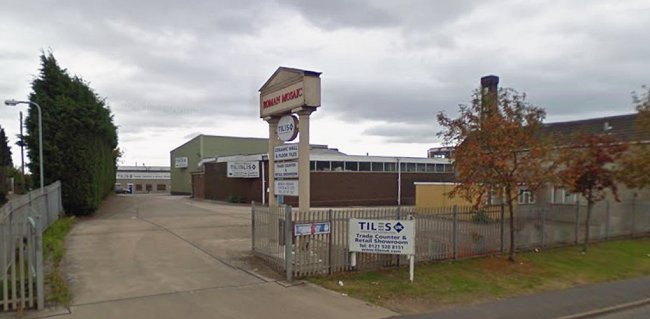
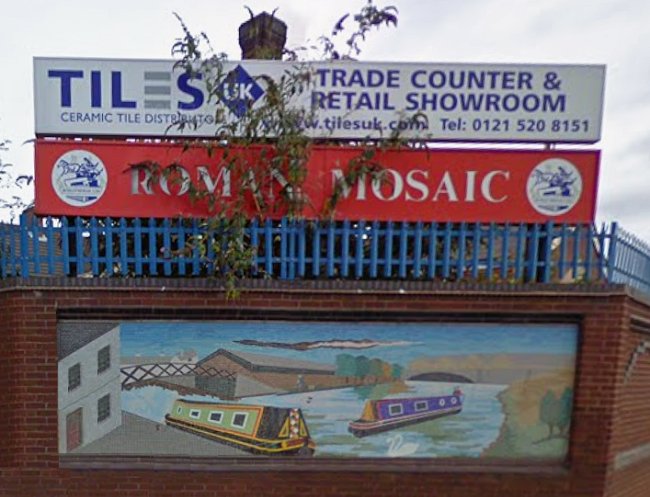
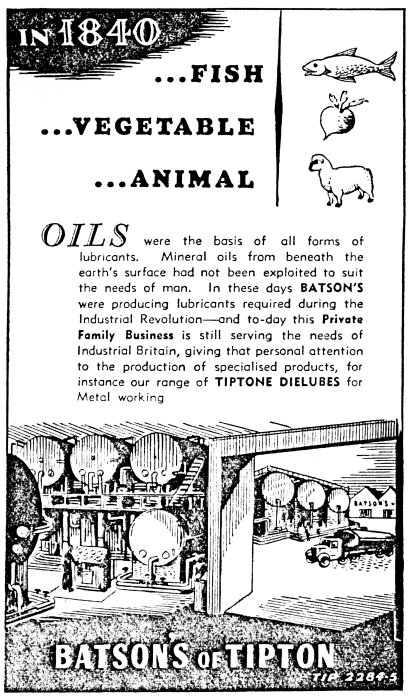 |
Joseph Batson &
Company Limited, Dudley Road, Tipton, on the
corner of Castle Street and alongside the canal.
The firm were Oil refiners
and grease manufacturers.
In 2003 the business
was acquired by
H & R ChemPharm (UK) Limited.
It is now one of the few remaining Tipton
factories that are alongside the canal. |
|
 |
 |
 |
|
Return to
Victoria Park |
Return to
the
beginning |
Proceed to
Growing Town |
|